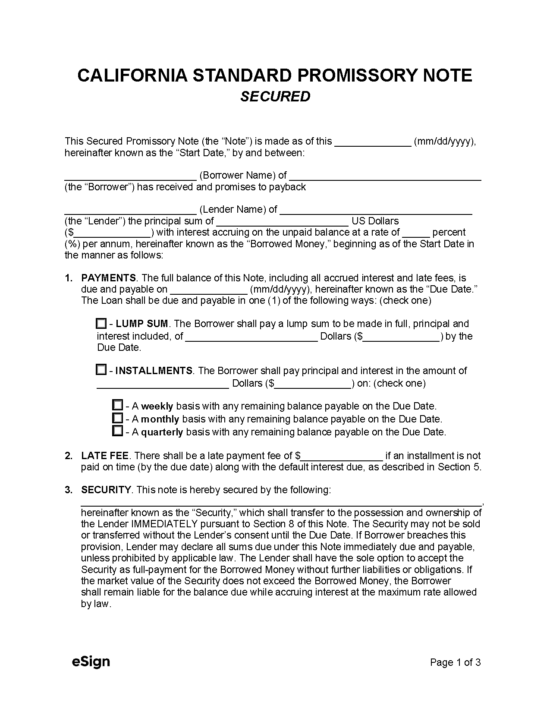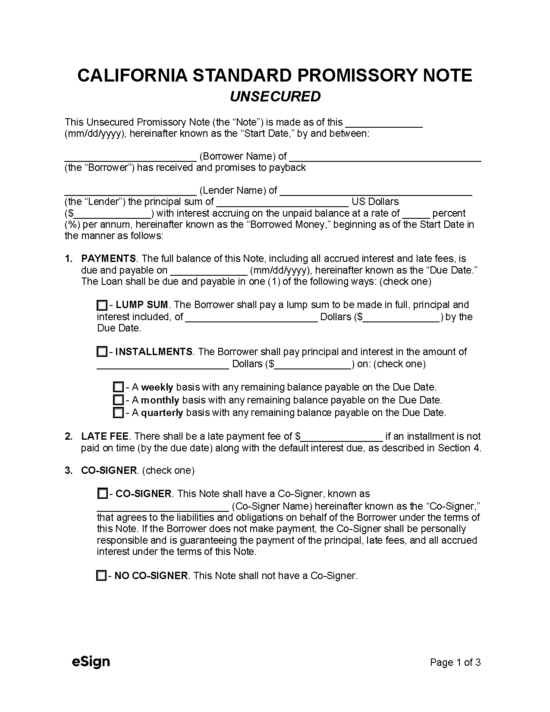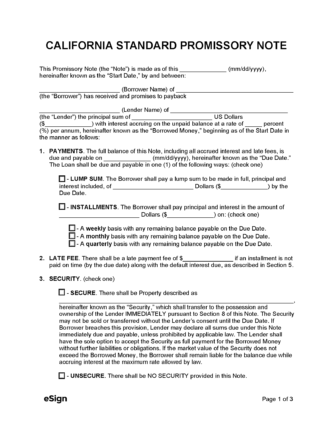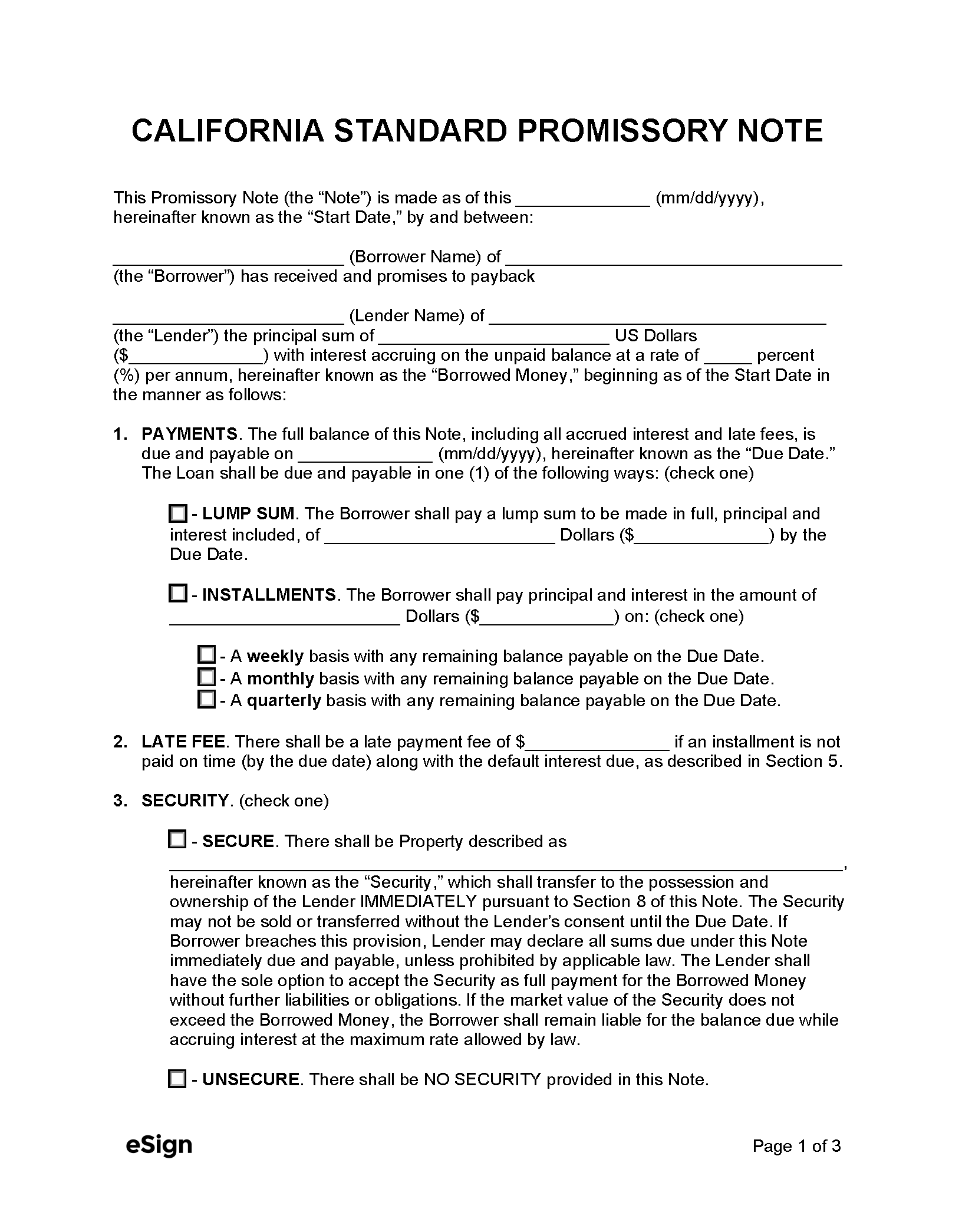Types (2)

Download: PDF, Word (.docx), OpenDocument

Download: PDF, Word (.docx), OpenDocument
Laws
- Interest & Usury Laws: CONS Article XV
- Usury Rate for Personal, Family, or Household Purposes (CONS Article XV (1)): Over 10%
- Usury Rate for Home Purchases and Improvement, and Business Expenses (CONS Article XV (2)): Over 10% OR over 5% on top of Federal Reserve Bank of San Francisco’s discount rate, whichever is greater.
- Usury Rate for Money Judgment (CCP § 685.010): Over 10%
- Usury Rate for Judgment for Damages (CIV § 3287(c)): Over 7%
- Usury Rate for Pawn Brokers (CIV § 21200): Over 3%

